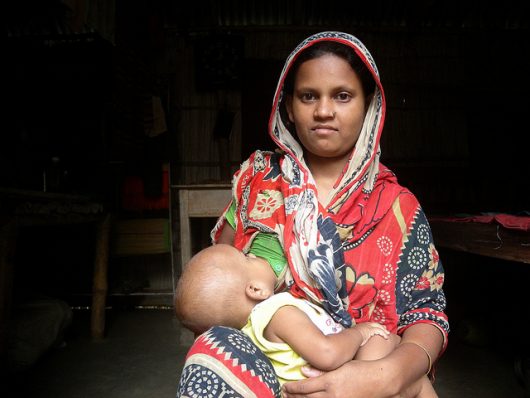5 Things You Should Know About World Breastfeeding Week

Breastmilk is a baby’s best protection against illness and disease, but data has shown that the number of newborns breastfed within the first hour of life has not improved over the past 15 years. World Breastfeeding Week is celebrated annually from August 1–7 in over 170 countries, and global organizations are sharing how early breastfeeding can make the difference between life and death.
5 Things to Know About Breastfeeding
- Delayed breastfeeding, even only 24 hours after birth, increases the child’s risk of dying within the first 28 days of life by 80 percent, according to the World Health Organization (WHO). Several factors contribute to this issue—from inadequate healthcare during delivery to babies being fed less nutritious alternatives, such as formula, cow’s milk or sugar water. These alternatives all decrease a newborn’s chance of survival. As such, government policymakers and organizations are targeting this issue by raising awareness and encouraging others to protect and promote exclusive breastfeeding.
- Research has found a clear connection between breastfeeding and higher IQ scores and educational achievement. Giving children the proper nutrition at the start of life supports optimal development and leads to higher earnings later in life–specifically, 12 percent higher per hour in high-income countries, and 16 percent in low to middle-income countries.
- The Global Breastfeeding Advocacy Initiative led by UNICEF and WHO is working with international partners to help build a healthy society. Lawmakers can show their support by ensuring a minimum of four months paid maternity leave, requiring employers to provide protection for mothers to pump milk at work and preventing discrimination against women and mothers in the workplace.
- Approximately 200 million children alive today will fail to reach their full physical, mental and social potential. Why? Negative factors inhibiting early childhood development–not being breastfed is among those factors. For this reason, WHO is working with countries to increase the rate of exclusive breastfeeding for the first six months up to, at least, 50 percent by 2025, in order to turn things around and save millions of lives.
- Breastfeeding produces long-term health benefits for both the mother and the child. The act of breastfeeding produces oxytocin, protects against diarrhea and common illnesses like pneumonia, and reduces the risk of obesity in childhood and adolescence. It is crucial that people are knowledgeable on the subject of breastfeeding and the effects it has on a child’s life.
Though some of the statistics given might seem shocking, World Breastfeeding Week takes the initial steps necessary to create change by raising awareness of the problem and producing individuals that can implement solutions.
– Mikaela Frigillana
Photo: Flickr
